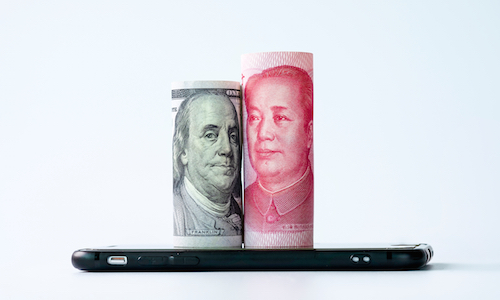I guess it is part of the deal for a sole superpower to invoke extraterritorial privilege as one way to exert influence globally and impose America’s will on others. We have seen this more frequently in recent history, for example with the sanction regimes against Russia and Iran, or as the US-China conflict has been heating up. Extraterritorialising (is that even a word?) jurisdiction basically means US laws will apply to non-US counterparts in a transaction done far away from American soil.
The circumstances around Meng Wanzhou are a case in point. Huawei’s, ie a Chinese company’s, dealings in Iran, a country in the Middle East but in the crosshairs of US sanctions, triggered her arrest in Canada, a separate sovereign nation from the US, two whole years ago with the prospect of being extradited to America for prosecution. Washington’s arm is certainly long and works in truly mysteriously manufactured ways via the US judicial system.
The concept is similar to settling private commercial deals in US dollars. America’s benefit is that the dollar is the predominant currency to transact global trade, as it has to be processed through the US financial system. It is clearly the prerogative of Washington to decide who is allowed to be part of it. The world has over the decades become more or less dependent on it, and for many trading nations it has turned into an Achilles heel in modern days of geopolitics.
Take China and Hong Kong, for example. Amid the barrage of tariffs, export bans, and all kinds of sanctions this year there has been widespread speculation whether the Washington hawks would consider preventing Chinese banks from accessing the dollar settlement system. This has generally been considered as a nuclear option that the current White House would refrain from activating, as the global fallout could easily hurt American businesses and interests as well.
Still, Beijing cannot simply sit on its hands and hope for the best. Much like with the re-invigorated drive for self-sufficiency in tech and many other areas, the leadership has taken precautionary measures and accelerated the pace of promoting the Renminbi as an alternative currency for cross border payments. To be sure, we are a long way from home replacing the dollar, except for the gradual emancipation of the China-related trade, but Beijing has evidently decided it cannot live without.
One wonders if such implicit threats by Donald Trump’s hawks meet their objectives. Cutting entire nations of the dollar settlement system may have an impact on Russia, Iran, and maybe others, but China is simply too strong economically and can hardly be intimidated. The world, and that is both high- and low-value blocs, needs to and wants to trade with the Middle Kingdom, and if that were to mean that exchange of goods and services cannot be transacted in dollars, there would be ways around it.
Quite the contrary, actually… Beijing might even insist at one point in the near future that an increasing portion of its total trade with China be processed on the basis of Renminbi settlements and exert control on its own. There is a reason why the PBoC is probably furthest ahead of any developed nations to create a digital version of its currency. The e-Yuan, as it’s being dubbed, is already being pilot-tested in cooperation with the largest Chinese banks.
According to a commentary by the PBoC in September, China seeks to become the first to launch a digital sovereign currency, to further ambitions to internationalise the Renminbi and to reduce dependence on the dollar payment system. As deputy governor Fan Yifei said recently, the PBoC regarded the e-Yuan as an important infrastructure for the future. In other words, China will not rely on the dollar for much longer and build its own payment ecosystem.
To be sure, the wheels of change may still turn slower in China than we anticipate. In light of last night’s suspension of the historic Ant Group IPO Chinese authorities have evidently decided to dial back expectations and assess risks for consumers, stock market, and national reputation more carefully. Surprising that such concerns have not been addressed earlier. It looks like the extraordinarily fast pace of innovation is not quite in sync yet with Beijing’s regulatory considerations.
